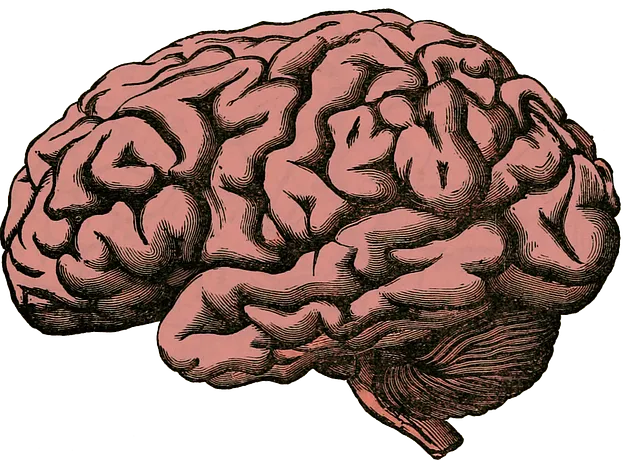Louisville's Kaiser offers comprehensive inpatient mental health services, addressing increasing demands for depression, anxiety, and substance use disorder treatment. Their holistic approach includes intensive care, outpatient support, workshops, and risk assessment, promoting long-term mental wellness. Through community outreach and education, Kaiser challenges stigma and enhances accessibility to care. Their programs empower patients, encourage self-awareness, and foster a supportive culture, mirroring their inpatient services on a broader community scale.
Louisville’s mental health landscape is evolving, with organizations like Kaiser leading the charge in understanding and addressing the community’s needs. This article delves into various advocacy initiatives that are transforming mental healthcare. From inpatient care settings designed to foster recovery, to community-driven advocacy efforts and educational programs aimed at breaking stigma, we explore how these strategies empower individuals and improve access to resources. Discover how Kaiser’s inpatient mental health services play a pivotal role in supporting Louisvillians on their path to well-being.
- Understanding Louisville's Mental Health Landscape: A Kaiser Perspective
- Inpatient Care: Unlocking Supportive Environments for Recovery
- Advocacy Efforts: Empowering Communities in Mental Health Dialogue
- Breaking Stigma: Educational Initiatives and Their Impact on Awareness
- Accessing Resources: Navigating Support Systems for Improved Well-being
Understanding Louisville's Mental Health Landscape: A Kaiser Perspective

Louisville’s mental health landscape presents unique challenges and opportunities, as seen through the lens of Kaiser. The city’s diverse community demands a multifaceted approach to address growing concerns surrounding mental well-being. According to recent studies, Louisville has experienced a rise in individuals seeking support for various mental health conditions, including depression, anxiety, and substance use disorders. This shift highlights the need for accessible and comprehensive services.
Kaiser, with its commitment to holistic care, offers both inpatient and outpatient programs tailored to the specific needs of the Louisville community. Inpatient mental health services provide intensive treatment for severe cases, while outpatient clinics offer ongoing support and therapy. Additionally, Kaiser facilitates resilience-building workshops and stress management programs, empowering individuals to cope with life’s challenges. They also emphasize risk assessment for mental health professionals, ensuring a safe and supportive environment for both clients and practitioners.
Inpatient Care: Unlocking Supportive Environments for Recovery

Inpatient mental health care plays a pivotal role in supporting individuals on their path to recovery. Louisville’s Kaiser, for instance, offers specialized inpatient programs designed to unlock supportive environments for those seeking healing. These facilities provide a safe and controlled space where patients can focus on their well-being, free from external distractions. By offering Coping Skills Development and other therapeutic interventions, Kaiser aims to empower individuals with the tools necessary for long-term mental health management.
Beyond individual treatment, Louisville’s Kaiser recognizes the importance of Community Outreach Program Implementation. They work closely with local communities to raise awareness about mental health issues and reduce stigma. Such initiatives not only enhance accessibility to care but also foster a culture of support and understanding. Additionally, focusing on Burnout Prevention is crucial in ensuring that both patients and healthcare providers maintain resilience throughout the recovery process.
Advocacy Efforts: Empowering Communities in Mental Health Dialogue

Mental health advocacy initiatives play a pivotal role in shaping communities where everyone feels empowered to speak openly about their well-being. In Louisville, for instance, Kaiser has made significant strides in providing comprehensive inpatient mental health services, reflecting a dedicated approach to addressing the needs of its diverse population. These efforts extend beyond clinical care, encompassing educational programs and support groups that foster self-awareness exercises and promote mind over matter principles. By encouraging open dialogue and offering confidence-boosting strategies, advocacy initiatives create safe spaces where individuals can share their experiences, challenge stigma, and seek help without hesitation.
Community engagement is a cornerstone of these advocacy efforts, as it fosters a collective sense of responsibility and understanding. Through partnerships with local organizations, schools, and businesses, mental health advocates work to integrate self-care practices into daily routines, ensuring that support is readily available to those in need. By leveraging resources like online platforms and community events, Louisville’s mental health advocacy groups continue to drive meaningful change, making it easier for individuals to prioritize their psychological well-being, just as Kaiser’s inpatient services do on a larger scale.
Breaking Stigma: Educational Initiatives and Their Impact on Awareness

In the ongoing battle against mental health stigma, educational initiatives play a pivotal role in fostering awareness and understanding. Louisville’s Kaiser, for instance, offers comprehensive inpatient mental health services, but breaking down societal barriers requires broader efforts. These programs focus on educating communities, challenging misconceptions, and promoting empathy towards individuals grappling with mental illness. By integrating topics like mental wellness coaching and burnout prevention into educational curricula, schools, workplaces, and community centers can create safer spaces.
Moreover, initiatives aimed at enhancing healthcare provider cultural competency training are instrumental in ensuring sensitive and effective treatment. Such training equips professionals with the skills to recognize and address diverse cultural perspectives on mental health, thereby improving patient outcomes. Through these collaborative efforts, communities like Louisville can move towards a more inclusive and supportive environment, where mental wellness is prioritized and stigmatization is reduced, ultimately benefiting those seeking help, including individuals exploring options for inpatient care at Kaiser.
Accessing Resources: Navigating Support Systems for Improved Well-being

Accessing resources for mental health support is a crucial step towards improving well-being, especially in cities like Louisville where various initiatives are available. Organizations such as Kaiser, renowned for its comprehensive healthcare services, offer inpatient mental health programs tailored to individual needs. These programs provide a safe space for individuals to receive intensive treatment and therapy, addressing a wide range of mental health concerns.
One effective approach that has gained traction is the implementation of Stress Management Workshops. These workshops, often led by mental health professionals, focus on teaching practical strategies for stress reduction and resilience building. Incorporating practices like Mindfulness Meditation can significantly enhance Mental Health Awareness, enabling individuals to better manage their emotional well-being. Louisville’s vibrant community also supports numerous initiatives aimed at destigmatizing mental illness, fostering open conversations, and ensuring access to the necessary support systems.
Louisville’s mental health landscape has seen significant progress, with organizations like Kaiser leading the way in providing comprehensive care. The article highlights various advocacy initiatives that focus on empowering communities and breaking down stigma. Inpatient mental health services offered by Kaiser create supportive environments for recovery, while educational programs and resource navigation ensure individuals have access to necessary tools for improved well-being. By continuing these efforts, Louisville can foster a more inclusive and understanding community for those facing mental health challenges.






